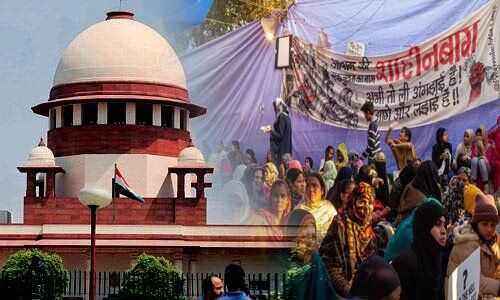The Supreme Court of India in an order provided for a rider to the right to protest & dissent.
Right to protest and express dissent comes with certain duties and cannot be held “anytime and everywhere”, the Supreme Court said in an order, dismissing a review petition on the anti-citizenship law protests held in Delhi’s Shaheen Bagh in 2019.
A review petition was filed by 12 activists, on the last year’s ruling by the Apex Court with regards to the protests which erupted against the CAA at the Shaheenbagh. The ruling by the Apex Court had termed the Shaheenbagh protests as illegal.
Also See: Grand-Old wonder woman of Shaheenbagh: a Superhero in herself
“The right to protest cannot be anytime and everywhere. There may be some spontaneous protests but in case of prolonged dissent or protest, there cannot be continued occupation of public place affecting rights of others,” the three-judge bench of Justices SK Kaul, Aniruddha Bose and Krishna Murari said while dismissing a plea by one Shaheen Bagh resident Kaniz Fatima and others seeking review of last year”s verdict of October 7. The three-judge bench reiterated that public places cannot be occupied for protests and that public protests must be “in designated areas alone”.
“Dissent and democracy go hand in hand,” the top court had observed in its October 2020 verdict, stressing that “protests like these are not acceptable”.





